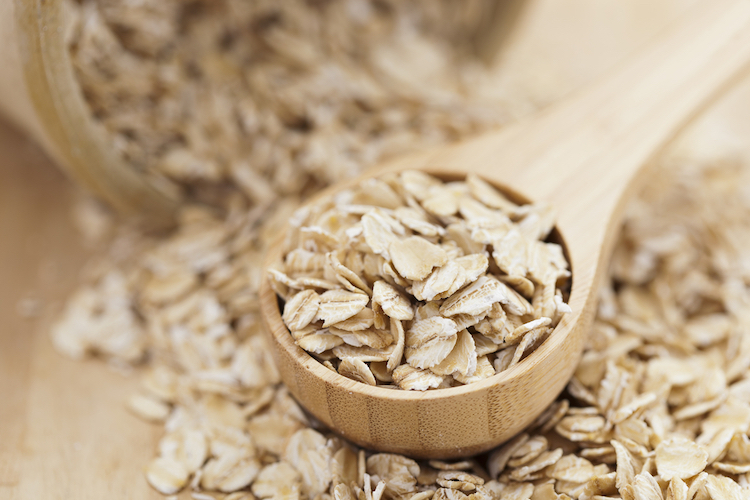These Are The Top Superfoods For Skin Health
Nutrition is a vital component of leading a healthy life; the food that you eat fuels your cells, provides energy for daily activities, and helps to protect you against illness and disease. People are becoming more aware of the fact that the foods they consume have a significant impact on their health, and the effects of our nutritional choices are not only evident in how we feel, but how we look as well.
How is your skin looking these days? Are you plagued with acne and other irritations that clog up your complexion, and messes with your self-confidence? Perhaps you’re prone to liver spots, bags under your eyes, and a sallow countenance that screams aging and degeneration? You are what you eat, and your skin will reflect your nutritional choices sooner or later, regardless of what your genetic predisposition is.
Making more conscious and intelligent dietary choices can help you to both feel and look better. Consider these power-packed, nutritious foods for healthy, vibrant skin at any age…
Beets
Let’s get down to business with the introduction of a few more vegetables to the diet. Beets are antioxidant-rich and loaded with vitamin C, a critical nutrient needed for skin health. Vitamin C is a natural stimulator of collagen production in the skin, and it helps skin cells mature into an outer layer called keratin, which helps to protect the subcutaneous layers of skin against free radical damage.
For those with inflammatory skin conditions, a beet’s antioxidant-rich compounds provide powerful anti-inflammatory effects, and the same compounds that create a beet’s vibrant color help to speed wound healing, and prevent additional damage from occurring. One note of caution: if you are taking the drug methotrexate for psoriasis, don’t consume beets, as they produce some unwanted side effects when combined with this drug.

Ghee
The health of your body and skin is intimately linked to the health of your gut. Recent studies indicate that an imbalance of good vs. bad gut flora can contribute to the development of atopic dermatitis, psoriasis, and acne. Short-chain fatty acids that are created from fermentation processes in your microbiome play a starring role in the formation of healthy skin cells. Butyrate, in particular, is a short-chain fatty acid that helps to inhibit inflammatory processes in the body that may show themselves on your skin.
Ghee is essentially clarified butter – it’s had the milk proteins and sugars removed, leaving its delicious buttery taste without those highly reactive substances that can wreak havoc on our gut flora. Encouraging improved gut chain reactions that promote the development of butyrate, ghee is an excellent choice for healthier, clearer skin.
Salmon
To combat skin issues like eczema, it’s necessary to improve your intake of the essential fatty acids EPA and DHA, which have remarkable anti-inflammatory properties. Salmon is a rich source of both of these fatty acids, and consuming two to three servings of this delicious fish weekly – along with its collagen-rich skin – will help to clear up many of the inflammatory outbreaks that you may be prone to.

Collagen
Collagen is being hailed as “the new superfood,” as it rapidly replenishes diminishing collagen that is naturally present in our skin. Collagen production begins to decline with age, although it’s needed for several critical processes to repair, renew, and regenerate damaged skin cells. Daily supplementation with collagen through food or supplements has been known to reduce signs of aging, improve the look of fine lines and wrinkles, and improve the skin’s elasticity.
Medical experts recommend anywhere from one to four tablespoons daily for visible results. It’s important to note that if you have an intolerance to foods rich in histamines, collagen may not be right for you. Sorry vegans, the only source of collagen in any form is to be found in animal products; you may have to make an exception in this case if you want to see results that come from adding this superfood to your diet.
Ground Flaxseed
Ground flaxseed is a veritable storehouse of omega-3 fatty acids; these compounds are essential for building robust cellular membranes and producing anti-inflammatory effects throughout the body. These same omega-3s are known to aid the skin’s moisture balance and soothe dry, irritated skin.
You may take flaxseed in supplement form, or you can ingest it by combining it with foods that you eat. It’s important to note that if you decide to consume flaxseed, you must grind it up, as the outer shell is indigestible. A mere two tablespoons daily are suggested for best results; sprinkle on soups, salads, or even your morning protein shake to optimize your skin’s nutrition.

Oats
This superfood can be used internally or topically to address issues like itching, irritation, acne, and dermatitis. It’s no wonder that many skin products on the market today contain oatmeal or a derivative of it. Both the beta-glucans and starches present in oatmeal have moisturizing, protective properties. Gluten-free oats are soothing for the GI tract as well, so any connections between gastrointestinal health and skin conditions are reduced with their introduction into your diet.
Beauty Is More Than Skin Deep
Real, vibrant beauty starts from within. The right combination of foods that provide essential vitamins, minerals, and other nutrients will give your body exactly what it needs to create healthy and glowing skin. Your greatest beauty secrets may be hiding in your kitchen, so get in there and create some skincare masterpieces.
